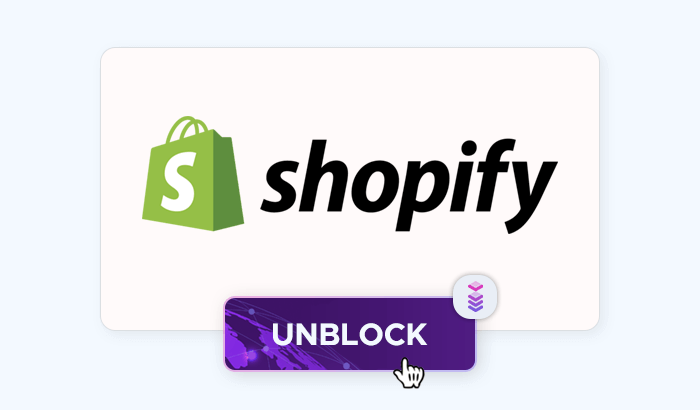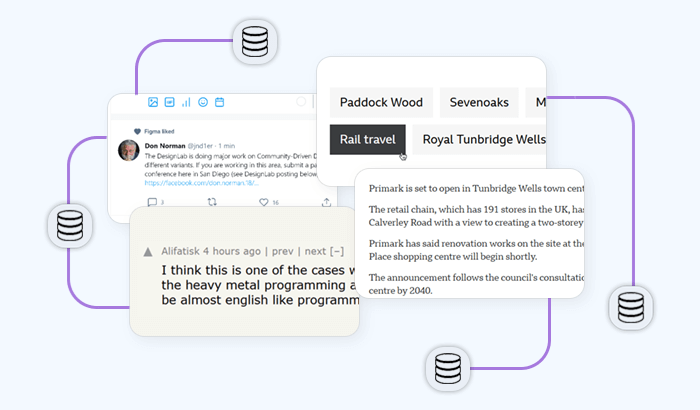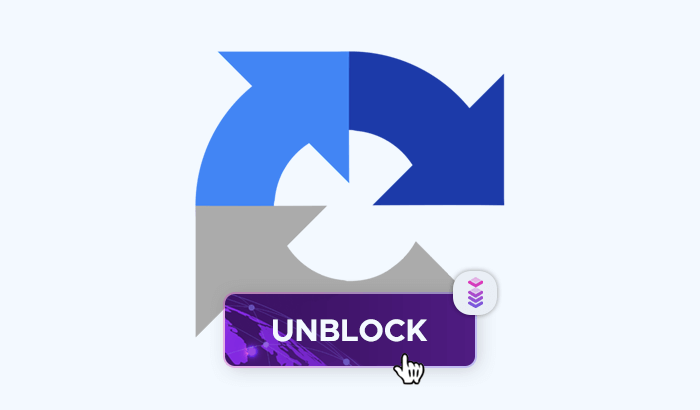

For everyday users, CAPTCHAs are a minor inconvenience, but for businesses that rely on automated tools to gather data, monitor prices, or run SEO campaigns, CAPTCHAs can create serious obstacles.
That’s where CAPTCHA proxies come into play. In this article, we’ll explore what CAPTCHA proxies are, how they work, and why different proxy types – datacenter, residential, ISP, and mobile – play a role in avoiding unnecessary CAPTCHA interruptions.
What is a CAPTCHA Proxy?
A CAPTCHA proxy is a proxy server specifically used to reduce the number of CAPTCHA challenges encountered during automated browsing or data collection. Unlike CAPTCHA-solving tools, which handle the challenge once it appears, CAPTCHA proxies work preventively: they lower the likelihood of being flagged as suspicious traffic in the first place.
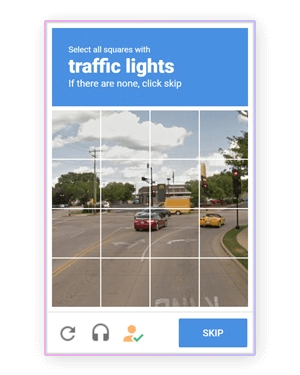
These proxies achieve this by masking the real IP address and replacing it with one that appears more trustworthy to the target website. For example, a request coming from a residential IP – one associated with a real household internet connection – is less likely to trigger a CAPTCHA than repeated requests from the same datacenter IP range.
In other words, CAPTCHA proxies don’t eliminate CAPTCHAs entirely, but they make it possible to collect data, test websites, or run marketing automation campaigns with fewer interruptions. When combined with strategies like IP rotation and device fingerprint management, they become an essential tool for keeping workflows uninterrupted.
Why CAPTCHAs Appear in the First Place
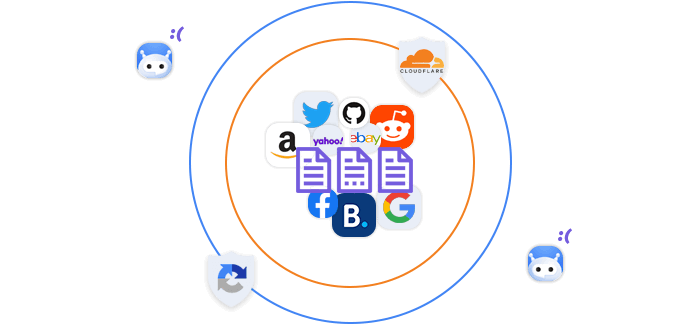
Websites use CAPTCHAs as a protective measure against automated activity that could disrupt their services or compromise security. While their purpose is valid, they can quickly become a barrier for businesses that rely on automation. Common triggers include:
- Unusual traffic volume: Sending too many requests from a single IP address within a short time signals bot-like behavior.
- Datacenter IP ranges: Many sites maintain lists of IPs linked to known datacenters. Traffic from these addresses is more likely to face CAPTCHAs.
- Geolocation mismatches: Accessing a site from a region where the majority of its audience doesn’t reside can raise suspicion.
- Repetitive browsing patterns: Automated scripts that consistently interact with a site in predictable ways are easier to detect.
- Low IP reputation: Some IPs inherit a poor trust score due to prior misuse, making them frequent CAPTCHA targets.
How CAPTCHA Proxies Work
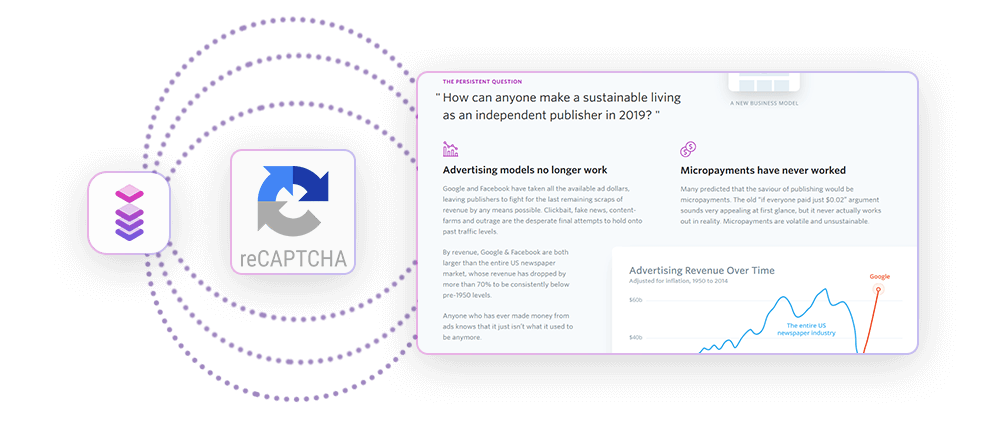
CAPTCHA proxies don’t bypass challenges directly; instead, they reduce the likelihood of CAPTCHAs appearing by making automated traffic look more like normal user activity. They accomplish this through several key mechanisms:
- IP rotation: Continuously changing IP addresses spreads requests across multiple identities, preventing websites from associating high activity with a single source.
- Trusted IP pools: Residential, ISP, and mobile IPs resemble real users’ connections, giving them higher credibility compared to standard datacenter IPs.
- Geolocation matching: Proxies can route traffic through IPs in specific regions, aligning with a website’s expected audience and reducing suspicion.
- Traffic distribution: By balancing requests across multiple IPs, proxies help maintain a natural browsing pattern that doesn’t trigger protective systems.
Types of Proxies for CAPTCHA Avoidance
Different proxy types have unique strengths when it comes to reducing CAPTCHA frequency. Choosing the right one depends on your project’s goals, budget, and performance needs.
| Proxy Type | Speed | CAPTCHA Risk | Best Use Cases | Infatica Offering |
|---|---|---|---|---|
| Datacenter | Very fast | Higher risk (often flagged by websites) | Bulk scraping, tasks where speed matters more than trust | Infatica’s high-speed datacenter proxies |
| Residential | Moderate | Low risk (appear as real household users) | Price monitoring, SEO, e-commerce research, general scraping | Infatica’s residential proxies with millions of IPs |
| ISP | High | Low–moderate risk (trusted like residential, fast like datacenter) | Reliable long sessions, automation tasks, fraud prevention | Infatica’s ISP proxies blending speed with trust |
| Mobile | Slower | Very low risk (most trusted by websites) | Ad verification, social media automation, sensitive scraping projects | Infatica’s mobile proxies rotating across 3G/4G/5G |
Use Cases for CAPTCHA Proxies

CAPTCHA proxies are valuable wherever large-scale or automated interactions with websites are essential. By reducing interruptions, they allow businesses to gather accurate data and keep workflows efficient. Common use cases include:
Web scraping & data collection: Companies rely on proxies to collect product, market, or competitor data without frequent CAPTCHA roadblocks. Residential and ISP proxies are especially effective for these tasks.
Price monitoring: E-commerce platforms, travel agencies, and aggregators use proxies to track competitor pricing in real time. Using trusted residential IPs ensures fewer disruptions.
SEO & SERP tracking: Automated rank-checking tools can trigger CAPTCHAs quickly. Rotating residential or ISP proxies allow accurate, uninterrupted results.
Ad verification: Businesses and agencies use mobile or ISP proxies to check how ads appear in different locations, reducing false positives caused by CAPTCHAs.
Market research & testing: Whether it’s testing user journeys, checking website functionality across geographies, or analyzing customer behavior, proxies ensure reliable results without constant CAPTCHA interruptions.
Your Next Steps
At Infatica, we offer a full range of proxy solutions – datacenter, residential, ISP, and mobile – designed to handle CAPTCHA-heavy environments. Whether you’re running web scraping, SEO monitoring, or ad verification campaigns, our proxies can help you get consistent results with fewer interruptions.
Explore our proxy solutions to find the best fit for your project.








